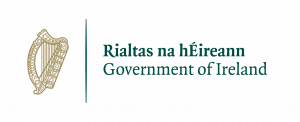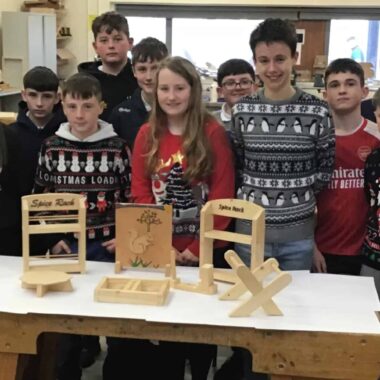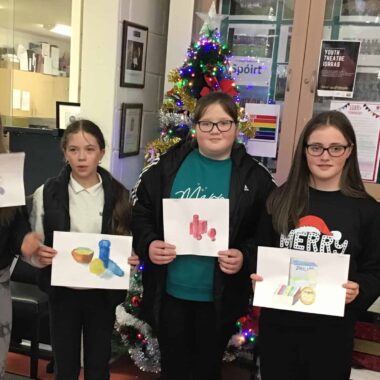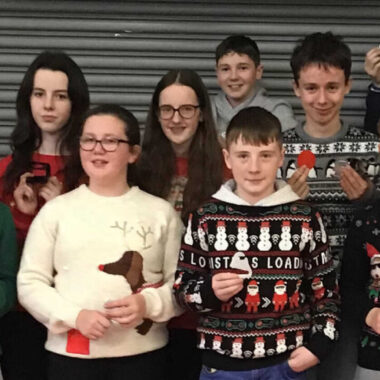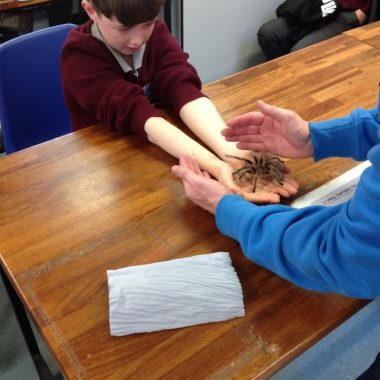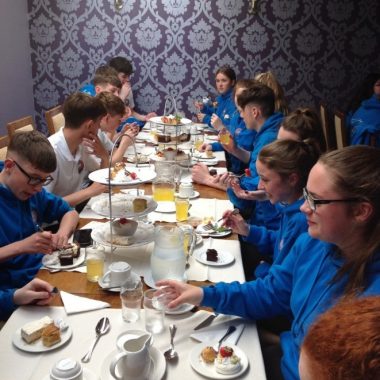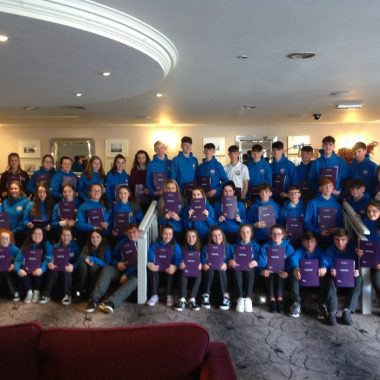The JCSP programme provides schools with a framework to ensure students enjoy positive experiences of the Junior Certificate through a creative, achievable, broad-based curriculum and go on to achieve success in the Junior Certificate examination. The Junior Certificate School Programme is a national programme sponsored by the Department of Education and Science and the National Council for Curriculum and Assessment. It originated in the early school leavers’ programmes initiated by the Curriculum Development Unit and currently the programme is operating in over 240 schools throughout the country.
JCSP
JCSP – Junior Certificate Schools Programme
Aims
The JCSP aims to provide a curriculum framework that assists schools and teachers in making the Junior Certificate more accessible to those young people who may leave school without formal qualifications. It attempts to help young people experience success and develop a positive self-image by providing a curriculum and assessment framework suitable to their needs. On completion of the programme students receive a profile which is an official record of their achievements from the Department of Education and Science. The aim of the Junior Certificate School Programme is to provide a fresh approach to the Junior Certificate Programme for potential early school leavers who are struggling to cope with secondary school. It is an intervention for these students based on the concept that all young people are capable of achieving real success in school. There are no core subjects as such. However, all students must be entered in the Junior Certificate Exam in English and Maths and they must follow a suitable course in Irish. The JCSP Programme is aimed at 12–16 year olds who are potential early school leavers. The Junior Certificate School Programme is not an alternative to the Junior Certificate. It is a framework that is designed to help schools and teachers develop an imaginative approach to the Junior Certificate course.
The JCSP is a way of working within the Junior Cert. It is designed especially to help young people who have had a difficult experience of school and may be potential early leavers. Through a system of profiling a student’s work in Junior Cycle classes, students are provided with opportunities to engage with the curriculum and to achieve success at school. They get an official certificate of their achievements, validated by the Department of Education and Science, in addition to their Junior Certificate Examination Certificate. The whole point of participating in the Junior Certificate School Programme is to stay at school, experience success in school and become more confident about sitting the Junior Certificate Exam.
All the students in the Programme must be entered for the Junior Certificate examination.
JCSP CELEBREATION DAY
Students cannot fail JCSP. The Programme is about success. Achievable statements are carefully chosen. Students get an opportunity to complete a series of statements and build their own success profile – a profile listing all the things they can do. It is up to the teacher and the school to decide what way they want to organise the students in their classes. Students are told that they are doing the Junior Certificate Course. Instead of waiting to do an exam to get a certificate after three years, they can begin to work towards their exams immediately. Teachers will take a chunk of their subject, called a statement, which ‘states’ that they can do something. This statement will be put on their certificates soon as they have achieved the required number of learning targets.
Students get an opportunity to become more involved in their own learning, discussing statements and meeting targets. Through engagement with this learning process, students begin to succeed and go on to build on this success. Students participate in JCSP Initiatives which are an opportunity to explore and develop new ways of learning. These initiatives can be extremely valuable to the weaker students as they learn by doing. Examples of some initiatives carried out in our school include; Visit to a History Museum, Celebrity Chef, Visit by a French Theatre group, Artist in Residence, Drop everything and read as Gaeilge, French food tasting, Exploring Science—exotic animals, Design and make Wood and Metal pieces etc.
Throughout their time on the Programme the JCSP team seeks out opportunities to reward and praise students and to give them useful feedback on their performance. In addition, the JCSP team tries to make positive contact with the students’ families. When the students sit their Junior Certificate exam they also get a certificate from the Department of Education and Science and a profile listing all they have achieved while on the Programme. Parental involvement is encouraged and welcomed in JCSP. Schools increase the frequency of contact with parents with emphasis on passing on ‘good news’. Many schools hold parent days to exhibit work done, award certificates of achievement and generally celebrate with parents their children’s successes. Parents are invited to become actively involved in their children’s education by working with the school in encouraging good attendance, punctuality and homework and by praising progress made.
JCSP CELEBREATION DAY
Students cannot fail JCSP. The Programme is about success. Achievable statements are carefully chosen. Students get an opportunity to complete a series of statements and build their own success profile – a profile listing all the things they can do. It is up to the teacher and the school to decide what way they want to organise the students in their classes. Students are told that they are doing the Junior Certificate Course. Instead of waiting to do an exam to get a certificate after three years, they can begin to work towards their exams immediately. Teachers will take a chunk of their subject, called a statement, which ‘states’ that they can do something. This statement will be put on their certificates soon as they have achieved the required number of learning targets.
Students get an opportunity to become more involved in their own learning, discussing statements and meeting targets. Through engagement with this learning process, students begin to succeed and go on to build on this success. Students participate in JCSP Initiatives which are an opportunity to explore and develop new ways of learning. These initiatives can be extremely valuable to the weaker students as they learn by doing. Examples of some initiatives carried out in our school include; Visit to a History Museum, Celebrity Chef, Visit by a French Theatre group, Artist in Residence, Drop everything and read as Gaeilge, French food tasting, Exploring Science—exotic animals, Design and make Wood and Metal pieces etc.
Throughout their time on the Programme the JCSP team seeks out opportunities to reward and praise students and to give them useful feedback on their performance. In addition, the JCSP team tries to make positive contact with the students’ families. When the students sit their Junior Certificate exam they also get a certificate from the Department of Education and Science and a profile listing all they have achieved while on the Programme. Parental involvement is encouraged and welcomed in JCSP. Schools increase the frequency of contact with parents with emphasis on passing on ‘good news’. Many schools hold parent days to exhibit work done, award certificates of achievement and generally celebrate with parents their children’s successes. Parents are invited to become actively involved in their children’s education by working with the school in encouraging good attendance, punctuality and homework and by praising progress made.
Further information available at http://jcsp.slss.ie
St. Brendan's College, Belmullet, Co. Mayo.
097 81437 Fax: 097 81469
[email protected]


